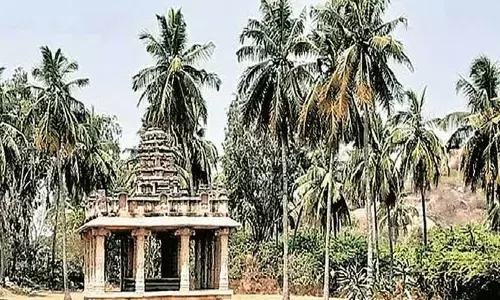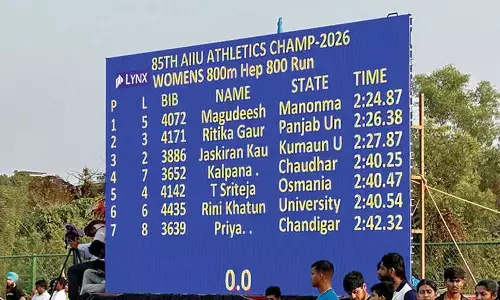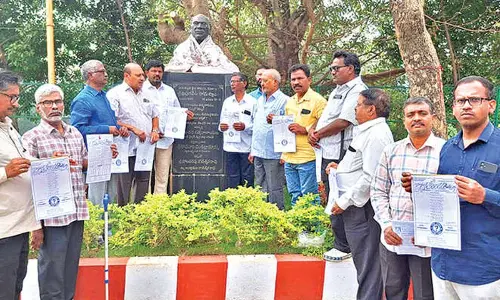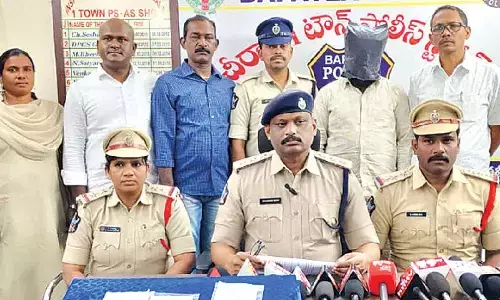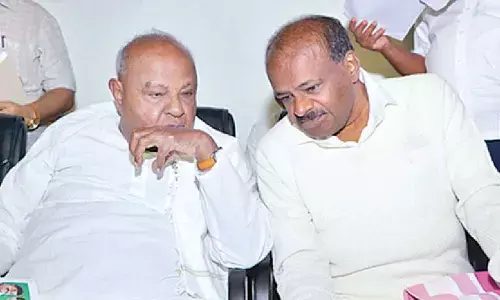NMC Bill: Doctors' protest continue Some relief for patients as emergency services resume
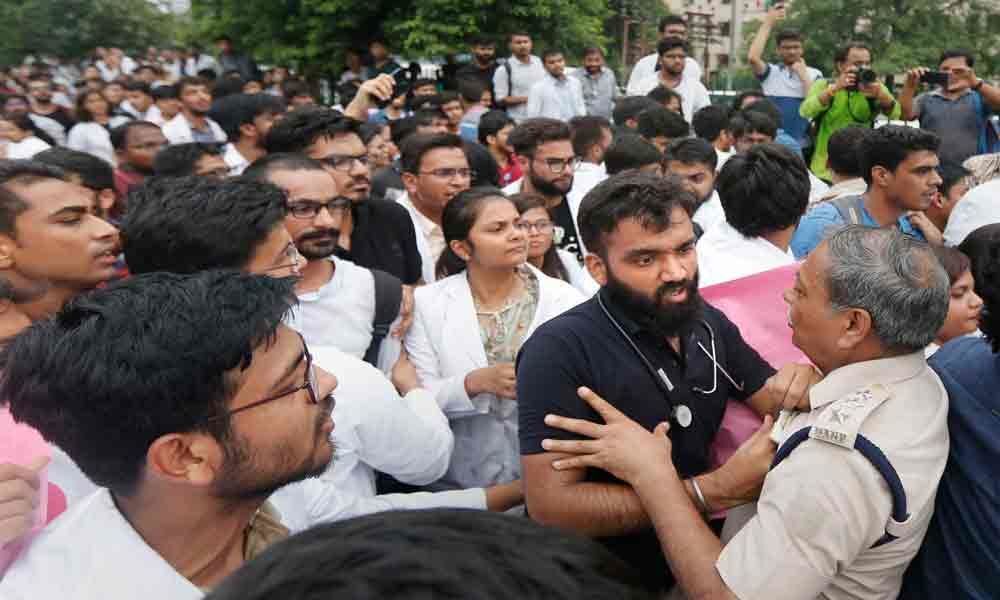 NMC Bill: Doctors’ protest continue Some relief for patients as emergency services resume
NMC Bill: Doctors’ protest continue Some relief for patients as emergency services resumeHealthcare services remained affected at several government hospitals in the national capital as resident doctors continued their strike on Saturday against the National Medical Commission (NMC) Bill, even though they resumed work at emergency departments in some relief to patients.
New Delhi : Healthcare services remained affected at several government hospitals in the national capital as resident doctors continued their strike on Saturday against the National Medical Commission (NMC) Bill, even though they resumed work at emergency departments in some relief to patients.
Police force was deployed outside AIIMS and Safdarjung Hospital in south Delhi as the protesting doctors came out on the streets agitated after authorities threatened punitive action against them on Saturday.
Following the health ministry's directive, the administration of AIIMS and Safdarjung Hospital issued memorandums to their resident doctors to resume work at their respective departments and warned them of termination of services if they do not join duty immediately.
Emergency services, however, resumed at almost all government hospitals in Delhi. Officials said from Saturday, some of the Delhi government-run hospitals resumed all the services. AIIMS resident doctors resumed emergency services around midnight Friday but non-essential services, including OPD services, remained suspended. At Safdarjung Hospital, the doctors did not join duties in any department, including the emergency department.
"All members of RDA and student union are hereby directed to resume their duties in their respective departments with immediate effects, failing which strict disciplinary action like suspension/termination of services, vacation of hostel accommodation etc may be taken," AIIMS administration said in the memorandum.
"I have been asked by the ministry to inform you that if the doctors do not resume duties immediately, strong punitive action like suspension/ termination of service, evacuation of hostel accommodation will be initiated against all doctors on strike," Dr Sunil Gupta, medical director at Safdarjung Hospital, said in the memorandum addressed to the hospital's Resident Doctors Association president.
Striking doctors from Safdarjung Hospital marched towards the arterial Ring Road after the Medical Superintendent warned of strict action against them if they failed to resume work. They later returned to the campus and sat on a dharna at the Gate No. 2 of the hospital. The striking doctors of AIIMS protested outside its Gate No. 1. Extra police forces were called in to ensure the situation remained under control.
Meanwhile, several faculty members and HODs at AIIMS had a meeting and heard the grievances of the students and resident doctors and expressed concern about the bill passed in a hurry without taking stakeholders into confidence.
Many of them extended support to agitating doctors and will have a GBM on Monday to decide future course of action. One of the senior faculty members doubted the intention of the government in breaching the autonomy of institutions of national importance through this bill, said sources.
Fees of private colleges on 85 per cent seats should be regulated by government, otherwise poor students will not be able to join this profession as medical education will get commercialised after implementation of the NMC bill, a senior doctor stated.
"Regarding community health providers, the government should have made clear-cut guidelines in the bill itself. Why is it trying to take advantage by using vague terms and conditions," the doctor said. The resident doctors have termed the bill "anti-poor, anti-student and undemocratic".
The doctors have been boycotting work and demonstrating over certain provisions of the Bill after its passage in Rajya Sabha on since Thursday. Resident doctors at Dr Hedgewar Aarogya Sansthan in east Delhi's Shahdara, which gets a lot of outstation patients, went on strike on Friday morning and on Saturday resumed services, a senior official said.
The NMC bill provides for setting up of a National Medical Commission in place of the MCI for development and regulation of all aspects of medical education, profession and institutions. Doctors are demanding certain amendments in the bill. According to them, if not amended, the bill will lead to deterioration of medical education and degradation of healthcare services.
The fraternity is opposing section 32(1), (2) and (3) of the bill saying it will encourage quackery by providing licence to practice modern medicine as community health providers for persons other than those possessing MBBS degrees.
The doctors say there was no clarity over the introduction of NEXT and scrapping the NEET-PG. They are also opposing decreasing the percentage of seats under controlled fees structure in private medical colleges and deemed universities from 85 to 50 per cent, reducing the representation of elected members from 75 per cent in MCI to 20 per cent in National Medical Commission and autonomous boards constituted there-under.
They are objecting to section 45 of the bill, which, they claim, empowers the Union government to override any suggestion of the National Medical Commission. The bill proposes a common final-year MBBS examination, to be known as the National Exit Test (NEXT), for admission to post-graduate medical courses and for obtaining a licence to practise medicine. It would also act as a screening test for foreign medical graduates.








